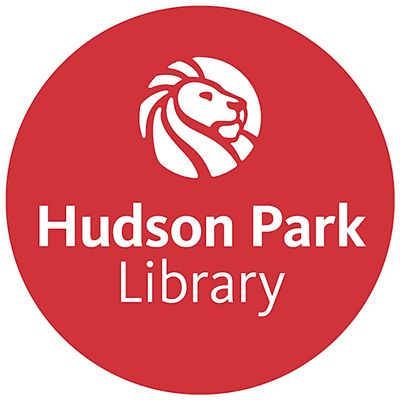
About this Event
In this six-lecture series, we will explore the evolution of Russian music from the 18th to the 20th centuries. Our discussions will go beyond the music itself, delving into the societal contexts in which these composers lived, their relationships with the tsarist authorities, their visions of Russia, and their personal fates. Of course, we will also examine the musical details and answer the question, "How is this made?" Understanding the structure of musical fabric, rhythm, and harmony can dramatically enhance the listening experience, revealing new layers and dimensions in the music. We will ensure to cover this aspect thoroughly.
*Space is limited and will be allocated on a first-come, first-served basis.
While it’s recommended to attend the entire series, each lecture stands alone as an independent narrative, yet together, they form a cohesive story.
Lecture 1. Glinka: How He Invented the Russian National Opera | Tuesday, November 5, 6-7 pm
In the early 18th century, operas in Tsarist Russia were predominantly influenced by Western styles, with little consideration for national identity. This changed with Mikhail Glinka, the first composer to infuse Russian folklore into the academic form of opera. In essence, Glinka was a musical chemist, blending Russian folk elements with Italian styles to create the first Russian opera, A Life for the Tsar. This lecture will take us back to 18th-century Russia, where we will explore its music, societal myths, and the influence of Tsarist censorship. Most importantly, we’ll analyze how Glinka embedded national identity into his music, helping us understand why he is considered the first true Russian composer and deepening our appreciation for his work.
Lecture 2. Rimsky-Korsakov: The Orient, Fairy Tales, and Mathematics | Tuesday, November 12, 6-7 pm
Although Mikhail Glinka lived only 53 years, his impact on Russian music was so profound that young composers sought to continue his legacy immediately after his death. These ambitious composers, however, had to invent a new Russian musical tradition from scratch. Among them was Nikolai Rimsky-Korsakov, who was particularly fascinated by oriental themes, maritime adventures, and fairy tales. Rimsky-Korsakov had the unique ability to use tonality to transport listeners to underwater worlds or make them feel the flight of a bumblebee. In this lecture, we will view Russia and its era through his eyes, uncovering the mythical, fairy-tale landscapes he created through his music.
Lecture 3. Mussorgsky: Russian Realism, Alcohol, and Broken Rhythms | Tuesday, November 19, 6-7 pm
While Rimsky-Korsakov crafted magical realms in his compositions, his contemporary Modest Mussorgsky chose a starkly different path. A musical realist, Mussorgsky shunned fairy tales and legends in favor of depicting the harsh realities of Russian life. His works feature orphaned children, beggars in love, and remorseful tsars. Mussorgsky not only portrayed the Russian reality in his music but also brought it to the stage, famously using real church bells in the coronation scene of his opera Boris Godunov, a moment that continues to send shivers down audiences' spines. In this lecture, we will dive into the contexts that inspired Mussorgsky, discuss his techniques for circumventing censorship, and examine why he preferred the raw, imperfect sound of the orchestra over the polished harmony favored by his peers.
Lecture 4. Tchaikovsky: Love, Orchestral Manipulation, and Ballet | Tuesday, November 26, 6-7 pm
Pyotr Tchaikovsky is perhaps the most renowned Russian composer of the 19th century, famously conducting his own music at the opening of Carnegie Hall. Tchaikovsky had a remarkable ability to convey profound emotions, especially love, through his compositions. Upon closer examination, his methods are surprisingly simple yet incredibly effective. For instance, the iconic theme from Swan Lake consists of a sequence of descending notes, but when combined with the accompaniment, it has moved generations of listeners. Tchaikovsky was also a pioneer, breaking away from traditional ballet forms to create his own interpretations. His opera The Queen of Spades includes a strikingly cinematic moment where the characters watch an opera and see themselves reflected in its protagonists—an opera within an opera. In this lecture, we will explore Tchaikovsky’s compositional techniques, his personal life, and the Russia of his time.
Lecture 5. Rachmaninoff: Emigration, Bell Ringing, and Unique Harmonies | Tuesday, December 3, 6-7 pm
Sergei Rachmaninoff, a devoted admirer of Tchaikovsky, was a melancholic and immensely talented pianist and composer. A nobleman deeply attached to his family estate and sisters, Rachmaninoff emigrated to the United States after the October Revolution. In America, he achieved great success as a musician. Rachmaninoff is known for his distinctive musical language, characterized by bell-like tones, dark, swirling textures, and prayerful moods, along with harmonies filled with both tenderness and despair. His style is so unique that one of his chord progressions has become known as "the Rachmaninoff chord." Despite its complexity, Rachmaninoff’s music is easily accessible and emotionally resonant with audiences worldwide. This lecture will delve into his compositions, exploring how he skillfully blended chords to create a synthesis of Romanticism, Modernism, and Jazz.
Lecture 6. Shostakovich: Repression, Polyphony, and the Monogram Motif | Friday, December 13, 6-7 pm
We will conclude our exploration of Russian music with a deep dive into the life and work of Dmitri Shostakovich, a composer who lived through the era of Stalinist repression. Shostakovich’s life was marked by a duality: celebrated as a world-renowned genius, he simultaneously faced harsh criticism within the Soviet Union, criticism that could jeopardize his career and freedom. Shostakovich is often regarded as the voice of the Soviet era. His musical legacy ranges from propaganda film scores to searing symphonies, from the provocative and somber opera Lady Macbeth of Mtsensk to the Leningrad Symphony, famously performed during the siege of Leningrad. Shostakovich’s style is distinctive, marked by compressed, painful intonations and a highly recognizable orchestration. In this lecture, we will analyze how Shostakovich’s life experiences shaped his music and how his techniques not only conveyed deep emotion but also encoded messages for his contemporaries and future generations, allowing him to navigate the oppressive censorship of his time.

is a Russian musicologist. She trained as an academic composer in St. Petersburg, where her symphonic music was performed at the Mariinsky Theater and other concert halls. However, she soon realized that her true passion lay not in composition, but in understanding the intricacies of how music is crafted—how its harmony, rhythm, and arrangement can profoundly impact listeners. This realization led her to begin giving lectures, enriched with visual materials, to demonstrate how musical theory translates into musical meaning. Anna initially gained popularity in Russia, but due to the political situation, she was forced to leave the country in the winter of 2022. Since then, she has continued her lectures abroad, delivering around one hundred lectures in over 20 countries, covering both academic and popular music.
*Space is limited and will be allocated on a first-come, first-served basis.
Event Venue & Nearby Stays
Hudson Park Library, 66 Leroy Street, New York, United States
USD 0.00
